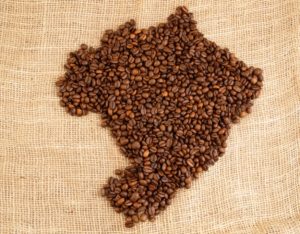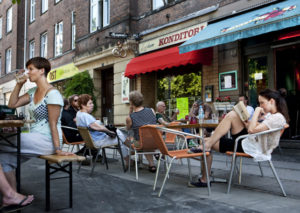February 2017: Brazil Suspended its Plan to Import Robusta From Vietnam
 In February 2017, Brazilian president Michel Temer suspended the plans of local coffee processors to import Robusta from Vietnam. Brazilian farmers have already been protesting against the idea. President Temer’s decision has temporarily put a stop to the dispute between the growers and processors of the country, reports Bloomberg.com.
In February 2017, Brazilian president Michel Temer suspended the plans of local coffee processors to import Robusta from Vietnam. Brazilian farmers have already been protesting against the idea. President Temer’s decision has temporarily put a stop to the dispute between the growers and processors of the country, reports Bloomberg.com.
This attempt by the world’s biggest coffee grower to import green coffee isn’t the first one. Back in May of 2016 the government granted the permission to import 400 metric tons of coffee from Peru and later backed out of the decision following the protests from the farmers as told Bloomberg.com.
Although the data provided by the congressmen showed local robusta supplies enough to last till the month of May (that is when new harvest is expected to arrive at the warehouses) proposing importing coffee would affect the farmers, but instant coffee makers in particular insist the situation is opposite. Agriculture Minister Blairo Maggi says coffee is insufficient and expensive in the market causing the Brazilian instant coffee industry to lose international market share says Bloomberg and Reuters.com.
The largest supply of Robusta in Brazil grows in Espirito Santo. But the region has been under drought conditions for the last two years greatly decreasing the robusta output.
Domestic robusta prices have plummeted 22 percent from a record high on Nov. 14 on import talks, according to the University of Sao Paulo’s Cepea research unit. Since then, coffee farmers in Espirito Santo have lost 500 million reais ($162 million) of potential revenue because of the price decline, Melo said (Bloomberg).
But revenue lose isn’t the only reason on the Brazilian farmers list to oppose the import. They are also concerned imported beans could bring new pests to their crops.
Robusta prices in London are up 53 percent in the last 12 months amid supply concerns, while arabica futures in New York have climbed about 26 percent compared with a year ago.
The Brazilian agricultural ministry even had the phytosanitary requirements issued for the imports from Veitnam which designated a one million-bag quota for the domestic produce while putting no limit on the rest of the amount of green coffee that could be imported for the processing and re-exporting practice.
Even though a legal order is still required to be issued by Temer to cancel the import orders officially, traders and coffee processors are waiting to get a hold of their coffee shipments from Vietnam. The situation is risky and no one would want to make any final deals in such moments of uncertainty says a trader from Minas Gerais state.
On 15th of March, 2017 Business Recorder (brecorder.com) reported that Brazilian government was set to organise an auction the coming week, to sell the locally produced robusta coffee beans. The organizers were to be the Brazil’s food supply agency Conab who announced in a statement that they will help to sell some 213,500 60-kg bags of locally produced robusta.
On 23rd of March insidefutures.com, economiccalendar.com and dailymail.co.uk collectively reported that auctions “failed to seal any deals”. The reasons were either the bean quality was very poor or the producer was demanding very high price if the beans were good enough to be bought. Either way the auction failure has boosted the agricultural ministry’s suggestion that robusta is less than demand. Chances are now high for the unusual situation of “Brazil buying coffee” to happen.


